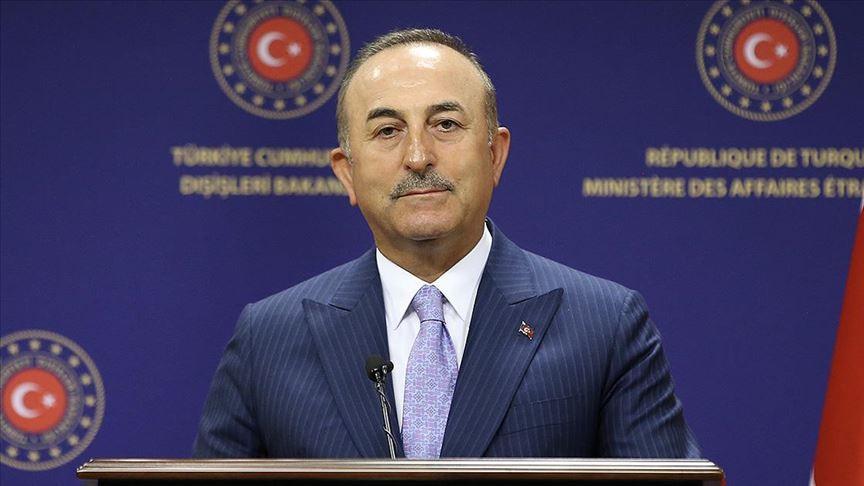
Turkey has warned the European Union that it will retaliate if Brussels decides to impose new sanctions on it over the ongoing dispute in the eastern Mediterranean ahead of a meeting bringing together the bloc’s 27 members about the problems with Ankara.
“We observe that Turkey will be on the agenda of the EU in the coming days. Taking decisions against Turkey will not resolve the existing problems; on the contrary, it will deepen them. If the EU takes additional measures against Turkey, we’ll have to respond,” Foreign Minister Mevlüt Çavuşoğlu told a joint press conference with the bloc’s foreign minister, Josep Borrell, on July 6 in Ankara.
“If you further sanction Turkey, we also have steps to take in the field, in the eastern Mediterranean,” Çavuşoğlu said.
Borrell paid a two-day visit to Turkey and met with Çavuşoğlu and Defense Minister Hulusi Akar. His visit comes a week before the EU’s foreign affairs council and European Parliament will hold special sessions to discuss the ties with Ankara.
France called for the meeting of the 27 foreign ministers, while French Foreign Minister Jean-Yves le Drian hinted at further sanctions against Turkey in the context of ongoing disputes in the eastern Mediterranean and Libya.
Criticizing the EU for imposing political roadblocks in front of Turkey’s accession process to the 27 member-bloc, Çavuşoğlu singled out France and Greek Cyprus for blocking reconciliation efforts in Ankara-Brussels ties.
“Don’t allow these two countries to take the EU hostage. This is not good for the EU, either,” Çavuşoğlu told Borrell.
France is attacking Turkey because it has lost ground in the Libyan conflict, while Greek Cyprus denies the existence of Turkish Cypriots and their rights to hydrocarbon reserves, the foreign minister said, suggesting that the EU should act as an honest broker in resolving the conflict.
“The EU ought to be part of the solution and not part of the problem,” Çavuşoğlu said, adding that Turkey would follow a more flexible stance in the event that Turkish Cypriots felt their rights were being protected.
The minister emphasized that Turkey was not responsible for the “deadlock” in the eastern Mediterranean and Cyprus.
Turkey’s expectations need to be fulfilled
While recalling that one of the issues the two parties discussed was a joint understanding to renew their March 2016 migrant agreement, Çavuşoğlu criticized the EU for not fulfilling its commitments to upgrade the customs union, provide visa waivers to Turkish nationals and revive political dialogue.
“We have expectations from the German presidency, just like every country has. We know that all our problems will not be resolved during Germany’s helm, but we want to see an improvement in updating the customs union and visa liberalization,” he stated.
Çavuşoğlu also criticized the EU for excluding Turkey from a list of safe travel countries amid the COVID-19 pandemic, although Borrell said the list was prepared based upon objective criteria and would be renewed every two weeks.
Ties not in ideal state
Borrell, meanwhile, acknowledged that the ties between Brussels and Ankara were far from ideal and that there were immediate and serious problems that must be resolved. “We have to change the dynamic of our relationship. We have to follow a more positive track so that we can avoid additional problems,” he said.
The eastern Mediterranean is a key issue for the security and stability of the EU and there is a need for dialogue with Ankara to resolve problems, Borrell said.